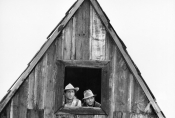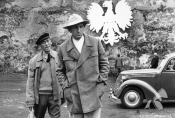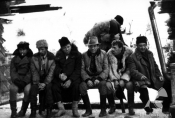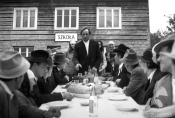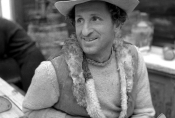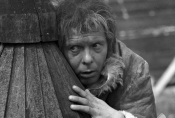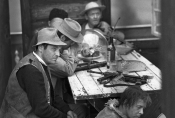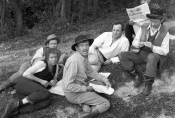THE SUN RISES ONCE A DAY [1967]
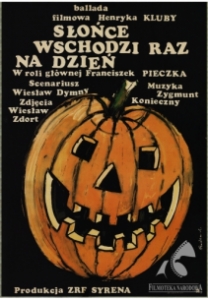
year:
- 1967
release date:
- 4 IV 1972
runtime:
- 90 min
directed by:
- Henryk Kluba
written by:
- Wiesław Dymny
director of photography:
- Wiesław Zdort
cast:
- Franciszek Pieczka [Haratyk], Ryszard Filipski [Górniok], Stanisław Gronkowski [Wigezy], Teresa Kamińska [Hanka], Marian Kociniak [Mały, a partisan, later the secretary], Zdzisław Maklakiewicz [Moskała], Józef Morgała [Piela], Edward Rączkowski [Bolączka]
edited by:
- Mirosława Garlicka-Jaworska
music by:
- Zygmunt Konieczny
production design:
- Jarosław Świtoniak
produced by:
- Zespół Filmowy „Syrena”
executive producer:
- Konstanty Lewkowicz
awards:
-
• Lubusz Film Summer Łagów 1972: best cinematography award for Wiesław Zdort, best male performance in a leading role award for Franciszek Pieczka, award of the students of the Film School in Łódź
• Lubusz Film Summer Łagów 1985: Grand Prix Golden Grape for qualities of original cinematic language in a film constituting an outstanding portrayal of folk mentality
About the film
The second film ballad, after Chudy i inni, made by the duo of Wiesław Dymny and Henryk Kluba; visually original and referring to the aesthetics of naïve painting with elements of neorealist observation. The nature of social conflict described in the script was the reason why the release of the film was delayed for five years.
Odkrzask village, the Beskid region, during the first post-liberation years. A conflict arises between the new socialist authorities and the local population as to the interpretation of property rights. Shaped by historical conditions, accustomed to isolation, self-sufficiency and overcoming obstacles, the selfish and distrustful Highlanders, led by a man called Haratyk, build a sawmill, a school and a brickyard. They consider it all public property, but they do not allow their neighbours to use them. The socialist authorities lack time and persuasion skills, so they apply the principle of "who is not with us, must be against us" by means of repressions and imprisonment.
Jan Słodowski, Leksykon polskich filmów fabularnych, Warszawa 1996
